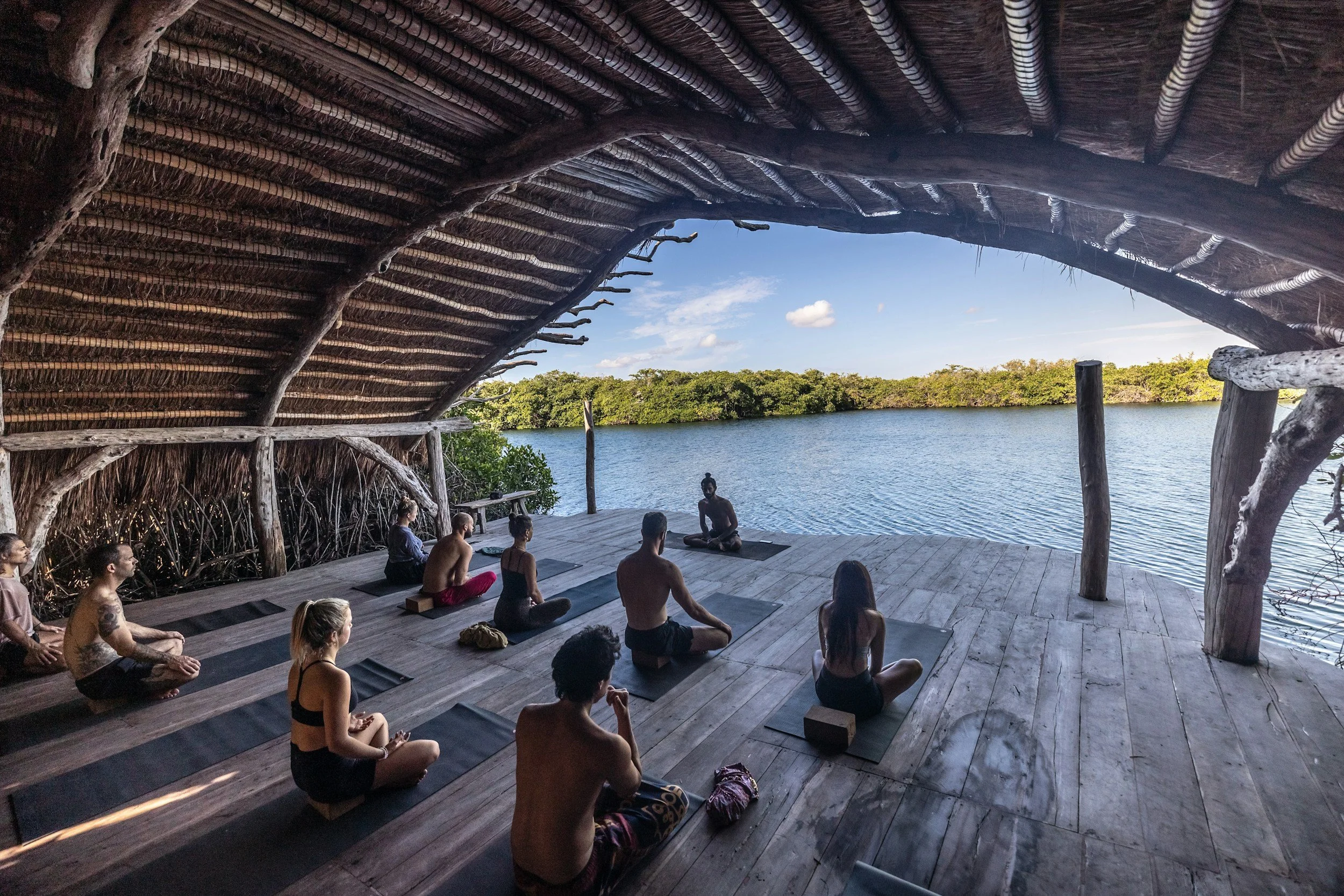The Benefits of Off-Season Travel for the Environment
The travel bug doesn’t check the calendar, but most people do. Peak seasons are often seen as the ideal time to explore new places. Summer breaks, holidays, and long weekends draw crowds like moths to a flame. Yet, there’s an increasingly appealing alternative that’s good for both the traveler and the planet—off-season travel.
This type of traveling, often defined as visiting a destination outside its typical tourist rush, offers more than just fewer crowds and cheaper accommodations. It plays a surprisingly powerful role in supporting sustainable tourism and environmental health. If you want to make a positive impact while enjoying everything the world offers, exploring during the off-season might be your golden ticket.
Off-Season Travel: Reducing Overtourism’s Strain on Ecosystems
Overtourism has become a growing concern in popular travel destinations around the world. When massive numbers of tourists flood into a location during high season, natural ecosystems take a beating. Beaches get littered, hiking trails erode, and fragile environments like coral reefs or alpine meadows can suffer irreversible damage.
Traveling off-season helps balance out this burden. Fewer people visiting at once offer these ecosystems time to recover. It reduces noise pollution, waste generation, and foot traffic that typically overwhelm the area. The slower pace of visitors means the environment can breathe, literally and figuratively.
Real-Life Decisions Spark Environmental Awareness
Beyond the environmental advantages, traveling during the off-season can inspire deeper, lasting shifts in people's lives and decisions. For example, a traveler who spends time in a quiet mountain town in the fall may develop a stronger appreciation for nature’s slower pace, local food sourcing, and renewable energy practices.
This growing awareness often plants the seeds for bigger life changes—downsizing to smaller homes, switching to sustainable products, or even relocating to communities abroad that prioritize eco-friendly living. For those inspired to take the next step, buying property abroad becomes a tangible goal. The process usually begins with researching the market, understanding local laws and regulations, and careful financial planning to ensure a smooth transition. An off-season getaway, it turns out, can leave a lasting imprint far beyond a simple week of rest.
Supporting Sustainable Local Economies Year-Round
While tourism brings economic benefits, those gains are often concentrated in a few peak months. Local businesses—hotels, restaurants, tour operators, and artisans—may struggle to stay afloat during the quieter periods. This boom-and-bust cycle can lead to layoffs and closures that hurt the community.
Traveling off-season supports a more sustainable and consistent income for local communities. It keeps people employed throughout the year and allows businesses to thrive without relying solely on the summer surge. This steady flow of income also encourages reinvestment into eco-friendly initiatives and local sustainability projects.
Lower Carbon Footprints with Less Congestion
One of the lesser-discussed perks of traveling off-season is the reduction in carbon emissions tied to crowd control. Airports, train stations, and roads are significantly less congested, so vehicles and transit systems operate more efficiently. Planes are less likely to be delayed circling runways, and public transport runs smoother with fewer passengers.
When travelers avoid high-season surges, it spreads out the environmental load. That makes it easier for transportation hubs to manage energy use, optimize routes, and reduce unnecessary emissions. It's a quieter, calmer, and more eco-conscious way to get from point A to point B.
Conservation Through Cultural Connection
Off-season travelers often find themselves immersed in a more authentic experience. With fewer people around, locals have more time and willingness to engage in meaningful conversations and share their culture. This personal connection fosters respect for local traditions, environments, and lifestyles.
When people feel connected to a place, they’re more inclined to care about its preservation. Tourists who learn about native wildlife, local environmental challenges, or traditional farming methods become advocates for conservation. These subtle, personal connections can drive bigger changes, influencing behavior and even policy over time.
Gentle Footprints on Popular Trails
Popular destinations like national parks or UNESCO heritage sites often experience the heaviest wear and tear during high season. The sheer volume of visitors can lead to trail damage, pollution, and wildlife displacement. Even the best-managed parks can struggle to maintain natural balance under intense pressure.
Visiting these locations during quieter months allows for a more intimate and respectful experience. Trails are less eroded. Animals are less stressed. Park rangers and staff can focus on conservation rather than crowd control. Essentially, off-season travel extends a courtesy to the land you’re walking on.
Reduced Water and Energy Consumption
Hotels, restaurants, and other tourism services use massive amounts of resources to meet the demand of peak-season guests. In the rush, businesses may prioritize profit over efficiency, cranking up air conditioning, running laundry nonstop, or offering buffet meals that lead to food waste.
Off-season stays reduce these high-demand pressures. With fewer guests, hotels often scale down energy and water usage. Some even take the time to upgrade their sustainability features during the low season—installing energy-efficient systems, reworking waste management practices, or partnering with local farms for seasonal produce.
Promoting Off-the-Beaten-Path Destinations
One exciting byproduct of traveling off-season is the opportunity to explore lesser-known destinations. Many travelers seek warmer weather or major festivals, but going against the grain often leads to hidden gems. These places are usually less developed for mass tourism, meaning they’ve retained more natural charm and ecological integrity.
Exploring these spots contributes to the decentralization of tourist dollars. It takes pressure off hotspots like Venice or Machu Picchu and instead brings attention (and income) to regions that are equally deserving of recognition. This broader distribution can encourage more balanced development and reduce environmental degradation in overexposed areas.
Long-Term Mindset for Climate-Conscious Travelers
Choosing to travel off-season aligns with a growing shift toward climate-conscious living. Travelers are beginning to consider where they go and how and when they do it. The long-term impact of these decisions can be significant when adopted by more people over time.
A climate-conscious traveler considers the ripple effect of their trip. They might stay longer in one place rather than hop around, choose eco-lodges over luxury resorts, and support businesses committed to sustainability. Traveling in the off-season is part of this mindset—it’s intentional, respectful, and low-impact.
Enriching Travel for the Soul
There’s something deeply enriching about visiting a place during its quieter moments. Traveling off-season offers the space to connect with nature, culture, and yourself. You’re not elbowing through crowds or stuck in lines. You have time to watch the light change on a quiet street, listen to birdsong uninterrupted, or share a slow conversation with a local shopkeeper.
This slower, more soulful travel can be surprisingly restorative. And when people return home recharged and inspired, they’re more likely to continue making choices that reflect that clarity and care. In this way, the environmental benefits ripple back into our lives long after the trip ends.
A Call to Travel Responsibly
Off-season travel is a privilege and a joy, but also a responsibility. Choosing when and how we travel matters. Off-season exploration is more than just a budget-friendly hack—it’s a conscious choice that supports the planet, local communities, and a more balanced world.
So, the next time you plan a trip, consider stepping off the beaten path and into the quieter seasons. Whether you’re chasing fall colors, winter serenity, or the bloom of early spring, know that your travel choices can echo positively across the globe.
Want to learn more about how you can travel sustainably? Check out our series of sustainability guides!
Search the Blog….
Visit us on Instagram




















